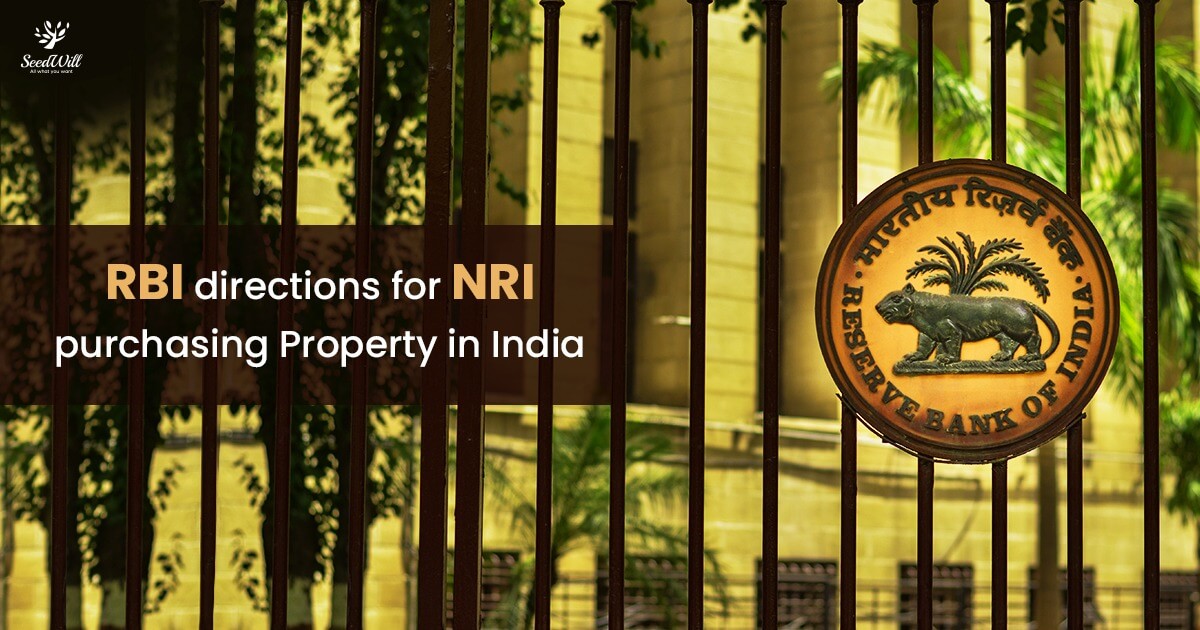
Decluttering Buzz on Whether or not an NRI can Invest in Indian Real Estate: RBI
In accordance with the current scenario, individuals with NRI status who are interested in investing in real estate by purchasing property in India, can invest in multiple residential or commercial sites here. However, it is advisable to have an understanding of compliance with the legal provisions prior to investing in real estate in India entitled under the Foreign Exchange Management Act (FEMA).
Genre of Real Estate, NRIs or PIOs Authorised to Invest
The Reserve Bank of India (RBI), the apex institution for banking, in the recently released circular has certainly authorised NRIs, to invest in any sort be it residential or commercial immovable property segment in India. The NRI tagged investor is not required to seek any permission from the official, nor is the NRI bound to intimate in this regard to the RBI.
On the off chance, if the NRI is unable to make their presence in India, the documentation pertaining to the investment can be executed by any authorised person given a valid power of attorney.
Individuals with NRIs/ PIOs status are authorised to invest in residential properties and commercial properties. However, they are strictly prohibited to invest in lands associated with agriculture and plantation but there is a provision of review of applications by RBI done on a case-to-case basis.
Prerequisites for NRIs/ PIOs While Investing in India
- NRIs are permitted to invest in residential properties and commercial properties, but are strictly prohibited to invest in agricultural and plantation lands but even this prohibition can also be nullified on a case-to-case basis.
- In common cases where the NRIs seeks to securely conduct the paperwork like property registration or the various financial/non-financial transactions by a third person, on their behalf, then there is a provision of transfer of power of authority (PoA) in the name of the authorized person.
- NRIs at par with any other resident Indian is also meant to comply with the taxing structure on making an investment here in India. The taxes generally include stamp duty, registration fee, property ID tax and even GST for under-development property sites.
- While the investment in the real estate sector in India is made with a sole reason to generate rental income and thus maintaining a passive income source then this income is subjected to be taxed.
- Also by chance if there is a generation of capital gains earned by selling of the immovable property, then the proceeds are subjected to be taxed with deduction in the range of 20% and 30% TDS.



